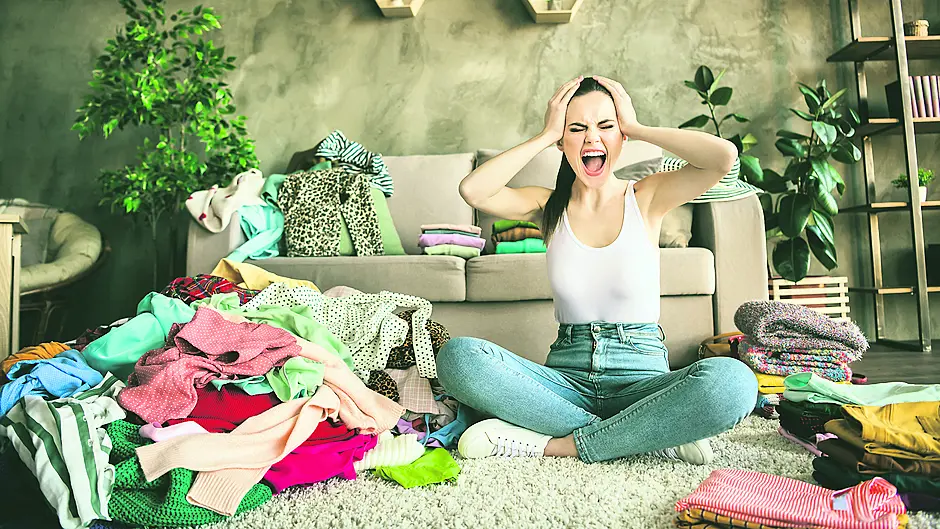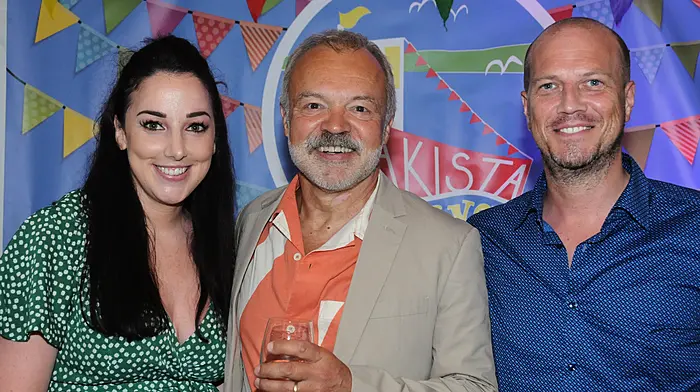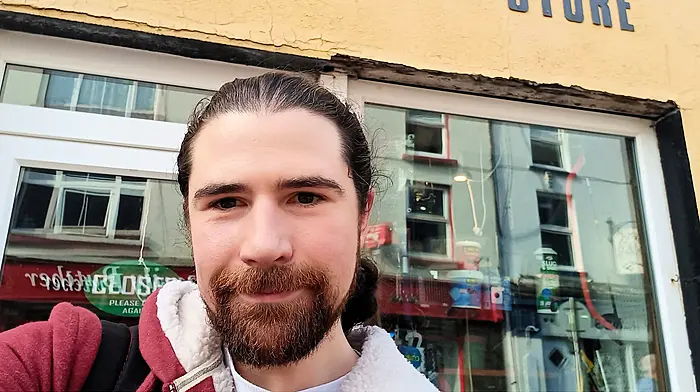With Linda Hamilton, Cognitive behavioural therapist
THE word ‘clutter’ brings to mind the image of a messy house. That’s not the only downside of clutter, however, because a physical mess can also mess with your mental health.There is no one definition of what constitutes clutter. One person might be driven crazy by the mountain of things they’ve accumulated over the years; another might say, ‘That’s not clutter, that’s my stuff.’
One reason people accumulate so much ‘stuff’ is because we form emotional connections with our possessions. There’s nothing wrong with that, at least in moderation. Indeed, research confirms when older people move to new residential settings, the stress they experience as a result of leaving home can be eased by taking with them objects of sentimental value, as this helps them maintain a sense of connection with their old life.
That said, it’s easy to accumulate too much ‘stuff’, and research confirms this can really hurt your well-being and quality of life. Clutter has been found to make people (particularly women) feel more stressed, as evidenced by higher cortisol readings. It makes it more difficult to find what you need and to get things done, leaving you feeling exasperated as you turn the house upside down looking for keys, clothes and so on.
Similarly, clutter makes it more difficult to use your house to do things you enjoy. Ideally, your home should be a place where you unwind and recover from life’s stresses. However, the opposite can occur in a cluttered household, with your stress levels rising as soon as you return home.
Clutter can also drive feelings of shame and inadequacy. This is partly driven by perceived cultural norms and pressures, the unfair notion that your home should be picture-perfect. But even if you don’t buy into such ideas, a chaotic house won’t make you feel in control and competent – the opposite is more likely.
Reasons
There are many reasons why people have clutter. Emotional sentiment, as mentioned earlier, is one reason. Guilt, a sense of obligation, clinging to the past, fear you might need something some day even though you don’t need it now, impulsive shopping habits – these and other factors can play a part.
Importantly, there is a strong link between clutter and procrastination. This makes sense. If you’re indecisive and prone to putting things off, you’re more likely to hold onto things because you can’t decide what to keep and what to bin. Procrastination can be a real problem, one that negatively impacts well-being and self-esteem in all kinds of ways. Increased clutter as one ages can end up becoming a negative symbol of lifelong procrastination. It can leave you with a feeling that you haven’t got things done, that you have been unable to adequately shape and direct your life.
My decluttering tips
I’m not suggesting everyone embrace a minimalist lifestyle, but there is a peace to letting things go. Ask yourself, do I really need this? Do I have the space for it? Would I buy it again if I didn’t own it?
Dr Joseph Ferrari, an expert in procrastination research, notes that if you are going to declutter, enlist another person to help. As you weigh up what to bin, get them to hold up the various items – you’re less likely to bin something when you touch it.
Sometimes, the task can seem overwhelming, so start small. Break your tasks into parts, focusing on one thing at a time.
Donate what you can to local charity shops. Remember, others can benefit from items you no longer need.
Aim to become a mindful shopper, not a bored or impulsive shopper. We get over-attached to things when we own them, so accumulate less. If you don’t, things will pile up again.
Finally, question your thinking style and beliefs. For example, some parents can be racked with guilt at the thought of throwing out things belonging to their children, viewing such clutter as ‘proof’ of their love. However, you can show your love in countless other ways. Besides, there’s no evidence suggesting parents living uncluttered lives love their children less!
Still reluctant to part with XYZ? Take photos of it, then bid it farewell.
Look forward, not backwards. As Ferrari puts it, ‘hold onto the memory, not the materials’; value ‘relationships, not relics’.
Linda Hamilton is a Kinsale-based cognitive behavioural therapist.
If you would like to get in touch with her, call 086-3300807
For more information, go to www.kinsalecbt.com









